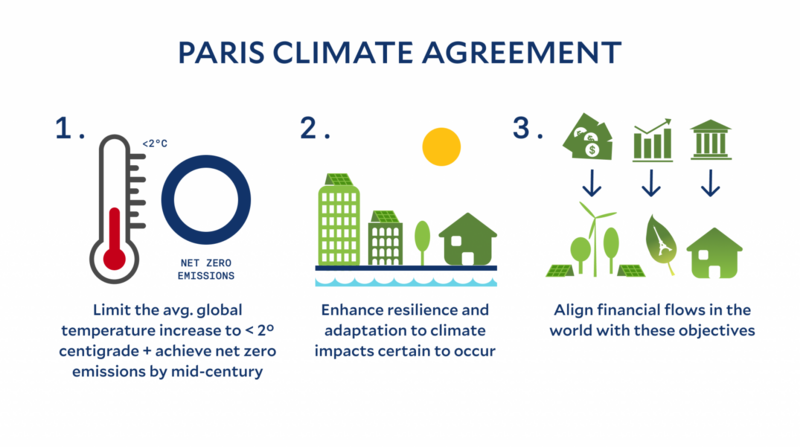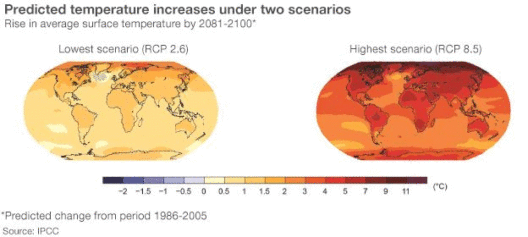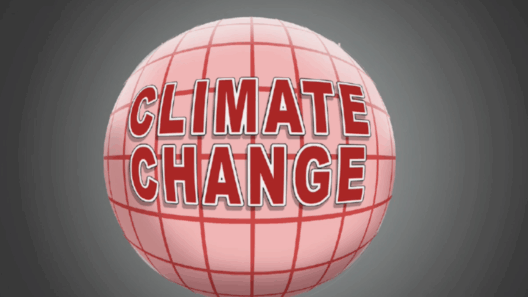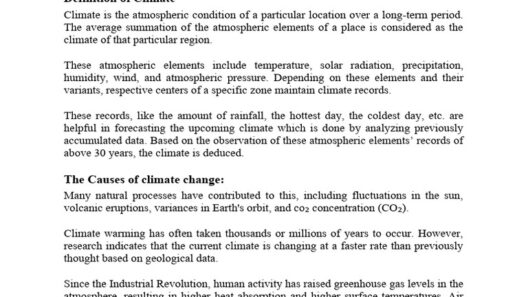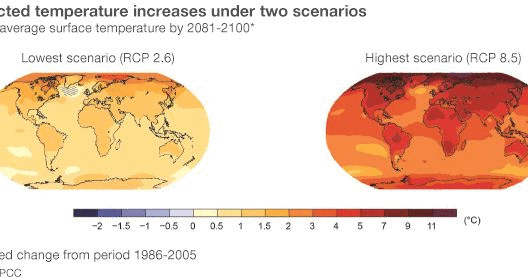The Paris Climate Treaty, more formally known as the Paris Agreement, represents a landmark commitment by the global community to combat climate change and its potentially catastrophic consequences. Adopted in December 2015 at the COP21 conference held in Paris, this treaty emerged as a culmination of years of negotiations under the United Nations Framework Convention on Climate Change (UNFCCC). Its primary objective is straightforward yet monumental: to cap global warming at well below 2 degrees Celsius compared to pre-industrial levels, with aspirations of limiting it to 1.5 degrees Celsius. This agreement signifies a collective recognition of the climate crisis and the urgent need for robust international cooperation.
To better comprehend the intricacies of the Paris Climate Treaty, it is essential to delve into its key components, implications, and the challenges it faces. Initially, it is essential to acknowledge the ambitious goal of reducing greenhouse gas (GHG) emissions. The treaty operates on a foundation of “nationally determined contributions” (NDCs), where each signatory submits its own plan for emissions reduction based on its national capabilities and historical responsibilities. These contributions vary widely, reflecting the disparate economic situations and developmental stages of each country. This flexibility is designed to encourage participation from both developed and developing nations, acknowledging their unique circumstances.
The Paris Agreement sets a long-term direction for climate action by establishing a framework for ratcheting up ambition. Every five years, countries are expected to review and enhance their NDCs, thus creating a dynamic cycle of escalating commitments. This iterative process aims to spur nations to innovate and invest in cleaner technologies and sustainable practices over time. The idea is to shift from fossil fuel dependence to renewable energy sources, making sustainability not just an obligation but an opportunity for economic growth.
In addition to setting emission targets, the treaty emphasizes adaptation and resilience. It recognizes that some climate impacts are already irreversible and calls for enhanced support for vulnerable communities, particularly in developing nations. This aspect of the agreement underscores a crucial moral obligation: wealthier nations, which have historically contributed the most to climate change, should assist those who are on the frontlines of climate disasters. This includes financial support for adaptation projects, technology transfers, and capacity-building initiatives, ensuring that all countries have the resources needed to cope with the adverse effects of climate change.
The Paris Agreement also contains a pledge to mobilize financial resources to aid developing nations. The goal is to reach $100 billion annually by 2020, as part of a broader effort to facilitate climate action and sustainable development. However, securing this funding means navigating complex geopolitical landscapes and overcoming diverse national interests. Achieving transparency in how these funds are allocated and utilized is crucial to ensure accountability while fostering trust among countries.
Implementing the Paris Agreement faces several challenges, the foremost being political will. National interests can diverge significantly—what one country views as a necessary step for environmental protection, another may see as an economic burden. Moreover, shifts in political administrations can dramatically alter a country’s commitment to climate goals, as seen in the withdrawal of nations from the Agreement or reductions in climate funding. This inconsistency underscores the need for a more robust global governance framework, which could ensure long-term adherence to the Agreement’s stipulations.
Furthermore, there is the pressing issue of public awareness and engagement. Climate change education plays a pivotal role in garnering public support for ambitious climate policies. Ensuring that citizens understand the implications of climate change and the necessity of the Paris Agreement is essential for fostering a culture of sustainability. Activism and advocacy can drive communities to demand accountable actions from their governments, pushing for stronger measures to protect the environment.
The scientific consensus on climate change, as evidenced by numerous studies and reports, accentuates the urgency of the situation. The Intergovernmental Panel on Climate Change (IPCC) has consistently warned that failure to adhere to the targets set forth in the Paris Agreement could result in catastrophic repercussions not only for the environment but also for humanity itself. Weaning ourselves off fossil fuels, embracing renewable sources, and enhancing energy efficiency are imperative steps that transcend political and national boundaries.
The journey toward limiting global warming is fraught with complexities, yet the Paris Climate Treaty serves as a vital framework for uniting the international community in this endeavor. It provides an architectural blueprint for climate action, emphasizing collaboration, ambition, and accountability. Over the years, various summits have built upon this commitment, demonstrating that collective action can yield tangible results when nations operate with a shared purpose. Every delay in action, however, exacerbates the impacts of climate change, making the role of civil society even more critical.
As we inch closer to critical climate thresholds, the path ahead demands not just compliance with international agreements, but a transformation in societal values regarding our relationship with the Earth. The ethos of sustainability must be woven into the very fabric of our decision-making processes, whether at the individual, corporate, or governmental levels.
In conclusion, the Paris Climate Treaty is a pivotal commitment that outlines a collaborative approach to climate change mitigation and adaptation. Its success ultimately hinges on sustained political will, innovative solutions, and robust public engagement. The fate of our planet relies on our ability to come together, facilitate dialogue, and act decisively in the face of one of the greatest challenges humanity has ever encountered. Each step taken towards fulfilling the promises of the Paris Agreement can carve a pathway to a sustainable and equitable future for generations to come.



